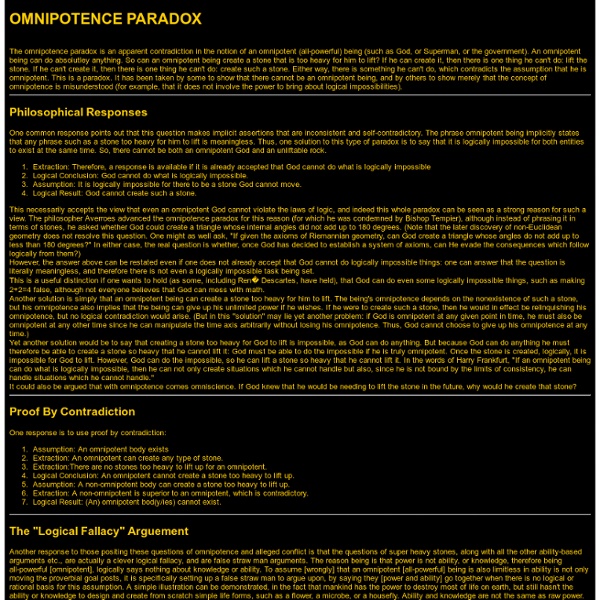Logic reasoning explained

Why the mantis shrimp is awesome.
They all look the same to me SCORE 109 That escalated quickly SCORE 111 Weird Al Magic Trick SCORE 116 Mexican proverb SCORE 110 Completely unnecessary SCORE 123 Universal Animal Truth SCORE 108 uh, heh.... After graduating top of my class SCORE 192 Plot Twist! Lick, lick, lick, lick... Proceed With Caution SCORE 135 walked into work and saw this on the message board SCORE 145
Logic: Logic and the laws of thought
G. Logic and the laws of thought There are three: 1. Law of identity 2. 3. These laws cannot be proved or disproved. Do the laws of thought apply to all of reality? Are they the basic rules of reality, or of thought only? Rationalism holds that the laws of thought apply to everything whatever because they are the most general truths of reality. Empiricism holds that the laws of thought are useful verbal conventions applying only to the way we think or talk, not necessarily to what we think and talk about or even necessarily how we must think or talk. a) The Principle of Identity Simply stated, the first of the fundamental laws is a tautology. b) The Principle of Noncontradiction Simply proposed, this asserts that "no statement can be both true and false." The word "paradox" is used sometimes to describe contradictions -- contradictions that, some would say, must be accepted. Occam would shout "poppycock" to that conclusion. Nature poses many riddles but contains no contradictions.
A Father Who Creatively Captures His Kids (20 photos)
If there was a prize that could be given out to the most creative father, I'd hope that it was awarded to Jason Lee. A wedding photographer by day, he's used to capturing some of the most important moments in a couple's lives. As a longtime fan of Jason's photos on Flickr however, I think the real magic happens when he turns the camera onto his daughters. Sure, his children are adorably cute in their own right, but that's not what makes his photos so interesting. It's when he puts his own spin on their everyday moments that we not only get to experience our own childhood again, we're able to see a father's pride shine through. I was able to get in touch with Jason to ask him a few questions. Q: How did you get into photography? Q: How do you come up with such creative photos of your daughters? Q: How has being on Flickr helped you with your business? Q: Any inspirational stories you'd like to share? Q: Do you have any advice for aspiring photographers? Q: Any quotes you live by?
List of cognitive biases
Cognitive biases are tendencies to think in certain ways that can lead to systematic deviations from a standard of rationality or good judgment, and are often studied in psychology and behavioral economics. There are also controversies over some of these biases as to whether they count as useless or irrational, or whether they result in useful attitudes or behavior. For example, when getting to know others, people tend to ask leading questions which seem biased towards confirming their assumptions about the person. However, this kind of confirmation bias has also been argued to be an example of social skill: a way to establish a connection with the other person.[7] Although this research overwhelmingly involves human subjects, some findings that demonstrate bias have been found in non-human animals as well. Decision-making, belief, and behavioral biases[edit] Many of these biases affect belief formation, business and economic decisions, and human behavior in general. Social biases[edit]
Related:
Related:



